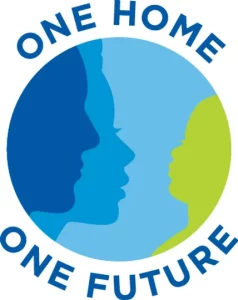In a historic moment, on Oct. 4, 29 U.S. denominations and faith organizations joined together to launch One Home One Future, a multifaith campaign to strengthen vitality, relevance, and community connection across generations to care for God’s creation in local congregations nationwide.
This campaign is organized by Blessed Tomorrow, the faith arm of ecoAmerica, a network of major institutions and thought leaders in five sectors — faith, health, communities, higher education and business — who have inspired millions of Americans on climate change in counties and communities nationwide.
 The One Home One Future campaign springs from the conviction that people of faith have a moral imperative to safeguard children, communities, and future generations. The holy scriptures of the world’s Abrahamic religions teach that God’s creation — the Earth — is sacred and that we are called to protect each other and the world that God entrusted to our care.
The One Home One Future campaign springs from the conviction that people of faith have a moral imperative to safeguard children, communities, and future generations. The holy scriptures of the world’s Abrahamic religions teach that God’s creation — the Earth — is sacred and that we are called to protect each other and the world that God entrusted to our care.
For instance, in Jewish texts we read: “Look at My works! How beautiful and praiseworthy they are. Everything that I have created, I created for you. Take care not to damage and destroy My world, for if you destroy it, there is no one to repair it after you” (Midrash Kohelet, Rabbah 7:13).
In the sacred writings of Islam we read: “The world is beautiful and verdant, and verily God, be He Exalted, has made you His stewards in it, and He sees how you acquit yourselves” (The Prophet Muhammad, Saheeh Muslim). In my own Christian tradition, we read that Jesus Christ came to reconcile our relationships with each other, with God, and with the land. “Through Christ, God was pleased to reconcile to himself all things, whether on earth or in heaven, making peace by the blood of his cross” (Colossians 1:19-20).
With climate change bringing New England unprecedented bouts of extreme rainfall and flooding, sticky heat, unpredictable seasons, and increased rates of Lyme disease because of the expanded range of ticks, it is painfully clear that climate change is not a threat in a far-off future or a faraway place but is already a here-and-now reality. The U.N. Intergovernmental Panel on Climate Change (IPCC) has called for the immediate reduction of planetary carbon emissions to levels 45% below 2010 levels by 2030 to avoid climate catastrophe.
We have seven years to meet these IPCC goals. Auspiciously, the number 7 is also prominent and important in sacred texts and faith traditions, representing wholeness, perfection and completion.
We can meet these goals! But more of us are needed to help advance solutions.
Over 70% of people in the United States are concerned about climate change, but many do not think that those around them are concerned or know what to do to make a difference. Thankfully, our local municipalities are beginning to organize an effective response. Northampton has launched a new climate action department and Easthampton is developing a climate action plan.
Local leaders and residents understand that we need to quickly reduce emissions, increase the adoption of clean energy alternatives, and improve our communities’ capacity to withstand climate shocks.
Meanwhile, leaders of many faiths are putting aside past differences and coming together to broaden inclusion for climate action. As Pope Francis wrote in “Laudato Si’,” “We need a conversation which includes everyone, since the environmental challenge we are undergoing, and its human roots, concern and affect us all … We require a new and universal solidarity.”
That is why the Episcopal Church and the Diocese of Western Massachusetts are joining over 25 denominations and faith organizations that have come together to create One Home One Future, a seven-year multifaith campaign to strengthen congregations and scale creation care and climate action in congregations and communities across the U.S.
Through One Home One Future, people of faith and spiritual people are answering the call to care for God’s creation and to ensure that our common home is thriving for our children and future generations. I hope you will join me in taking visible action in our homes, congregations, workplaces and communities, and in helping others to do the same.
___________________________________________________________________________________________________
The Rev. Dr. Margaret Bullitt-Jonas is an Episcopal priest who works to advance climate justice for the two Episcopal dioceses in Massachusetts and for Southern New England Conference, United Church of Christ. She is a member of the Leadership Circle of Blessed Tomorrow and lives with her husband in Northampton.
This essay was published on October 5, 2023, as a guest column in the print edition of Daily Hampshire Gazette (Northampton, MA).

